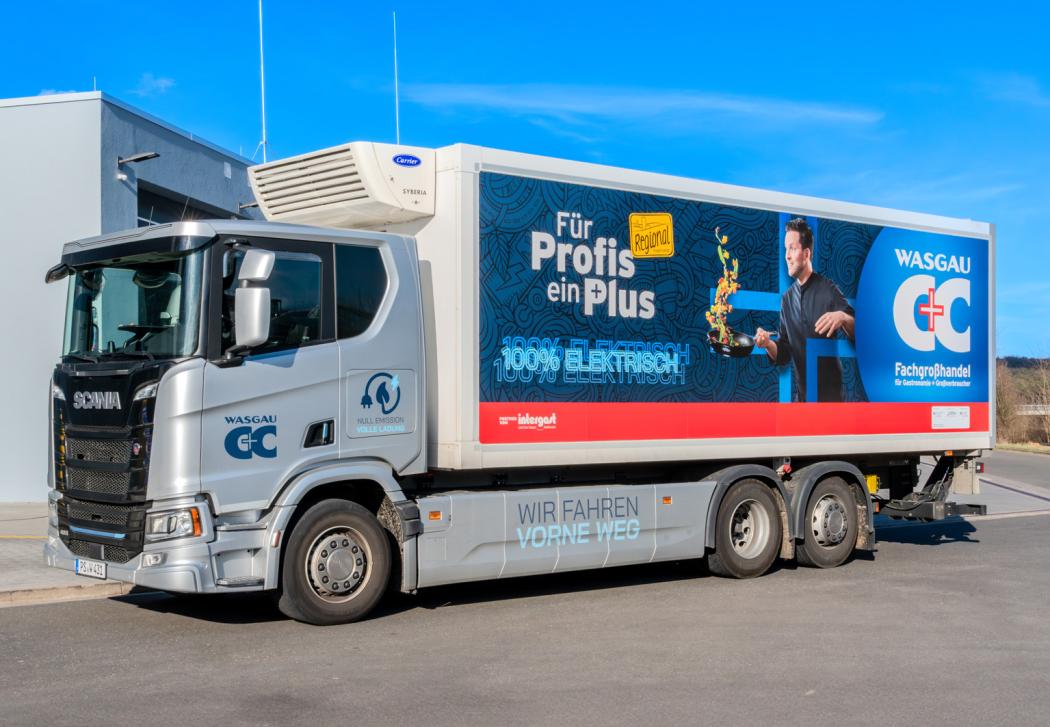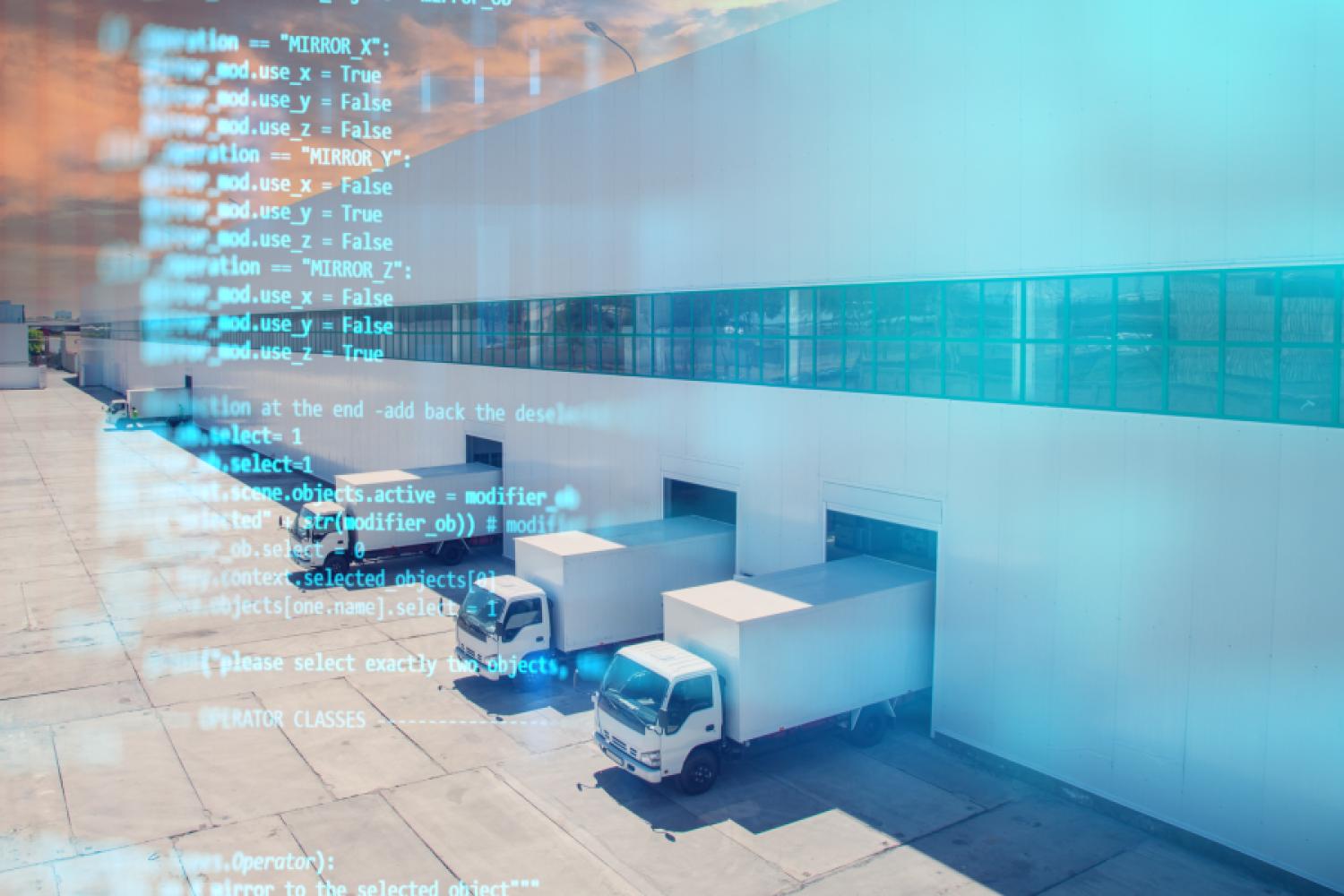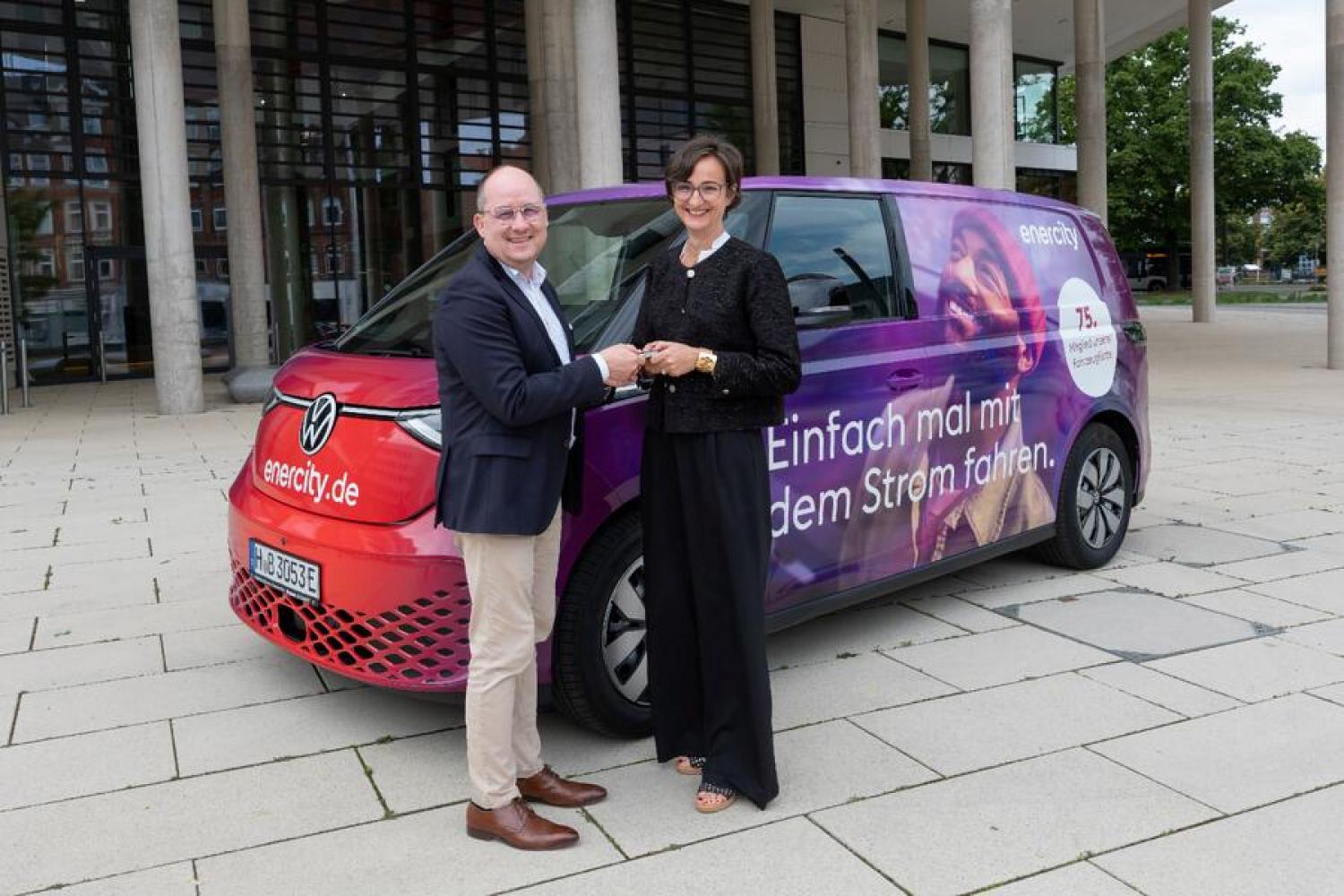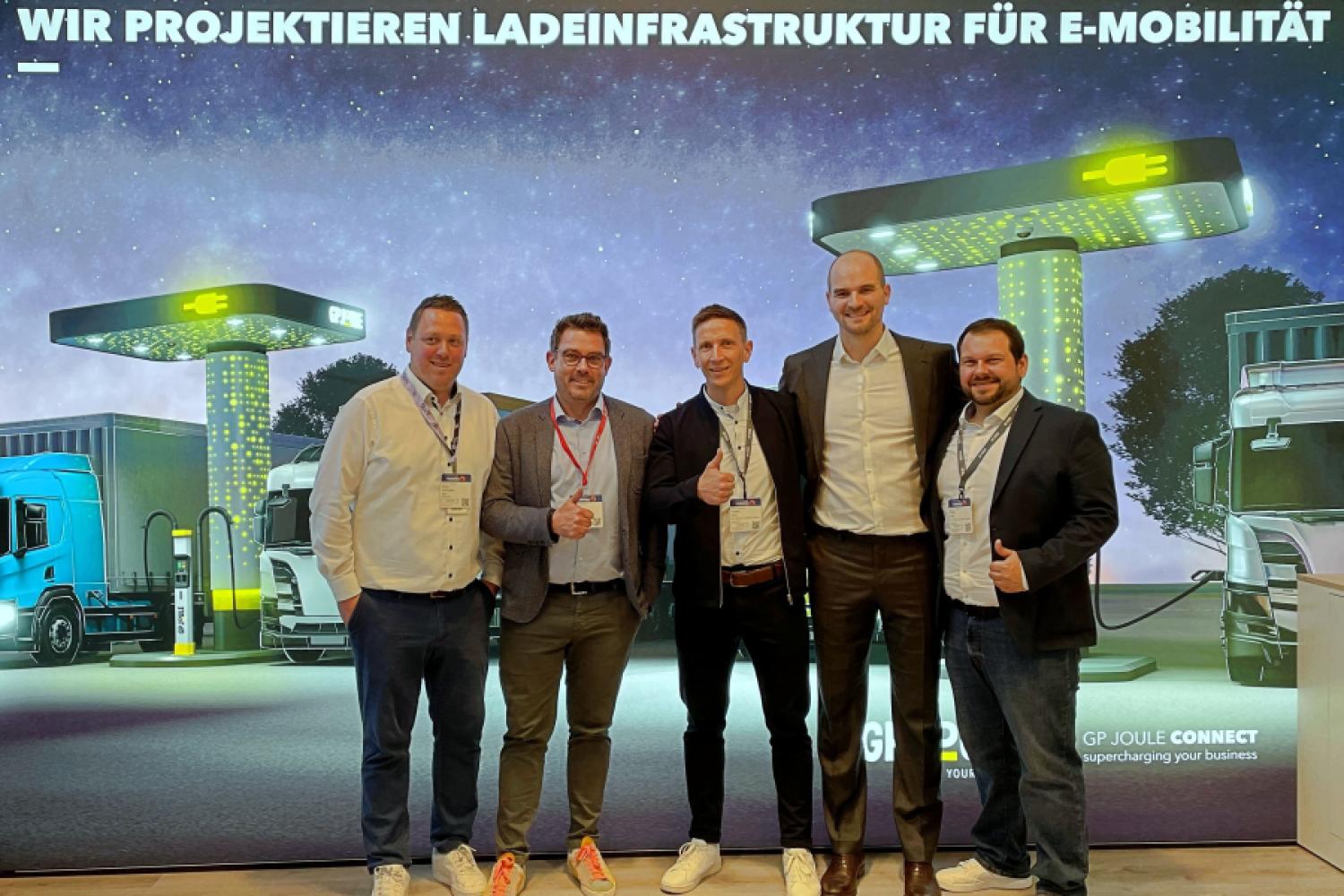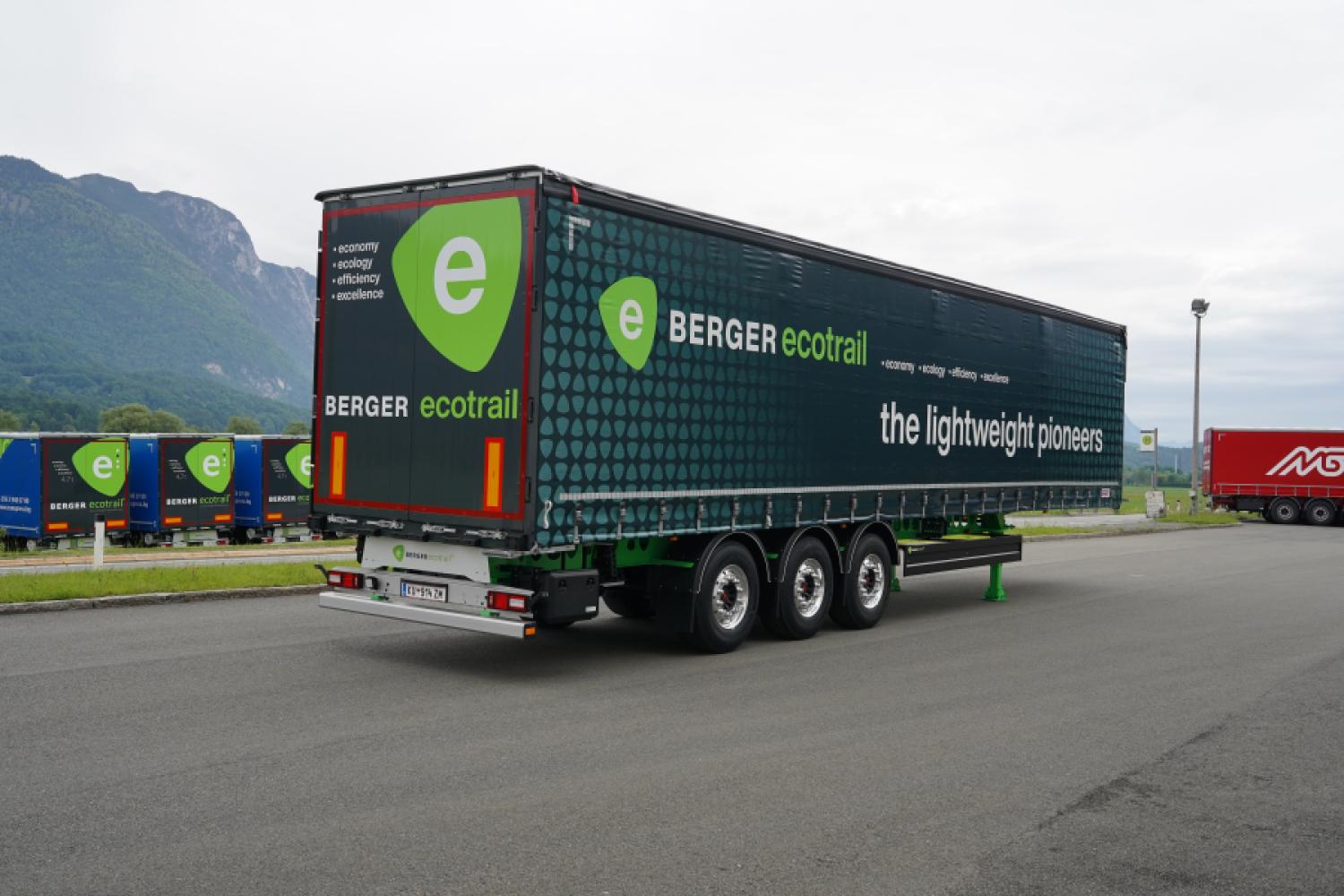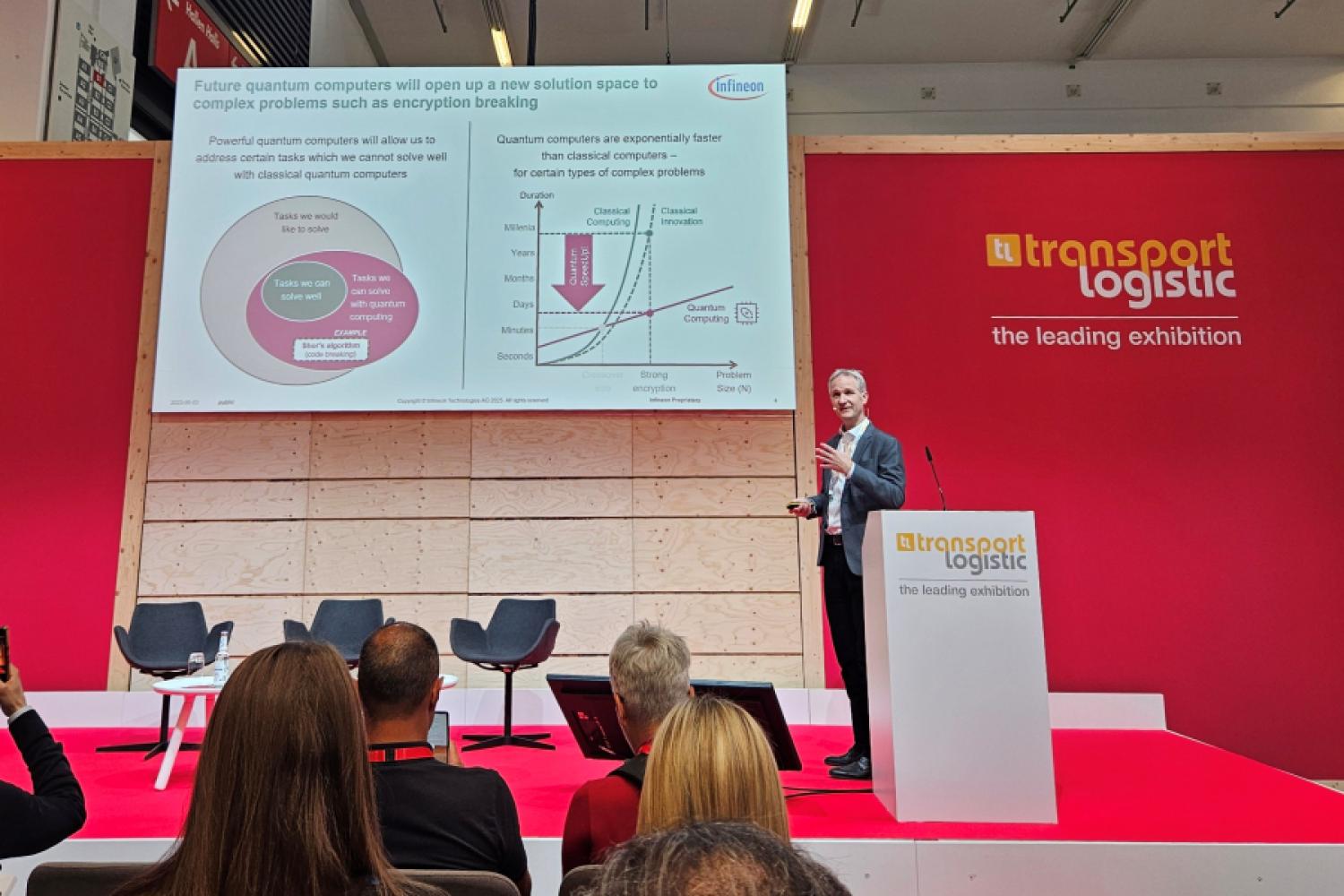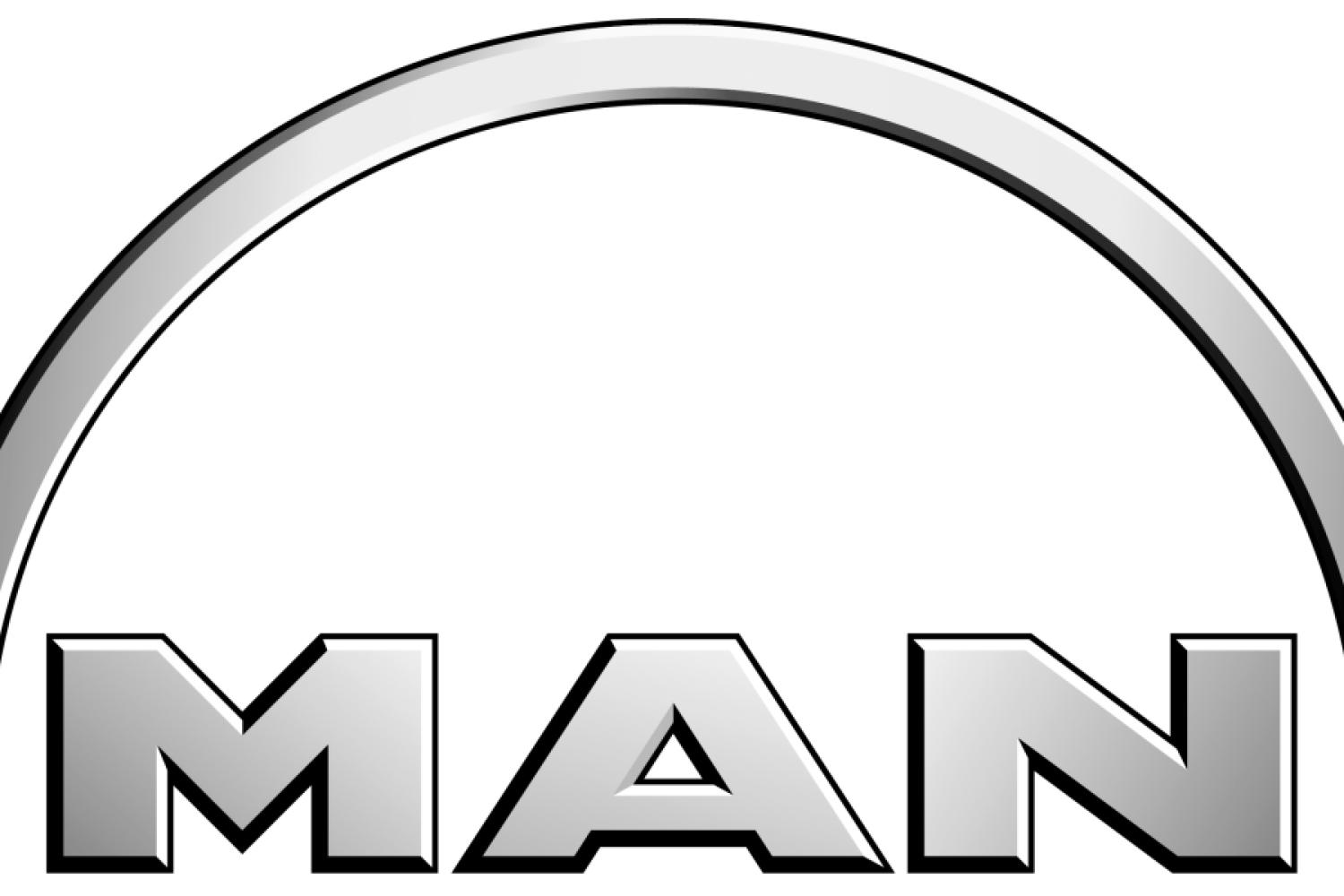The Wasgau C+C Großhandel GmbH, the cash and carry specialist of the Pirmasens-based food trading company WASGAU, now uses three newly acquired electric delivery trucks and an electric semi-trailer for its logistics. These are already in operation in Rhineland-Palatinate and Saarland.
Currently, about ten percent of the entire company fleet, which includes more than 40 trucks and vans, is electrified. According to the company, this corresponds to an estimated saving of about 350 tons of CO2 per year. During the course of the year, two more electric trucks are expected to be added, and additional orders for the end of the year are currently being considered, it is said. Claus Bärhausen, head of organization at Wasgau C+C:
“Sustainable action is not just a wish for
WASGAU but is implemented every day. The recent introduction of electric trucks in the C+C sector for logistics is another very important building block of this philosophy. Our experience with it has been very positive so far, although naturally, after a few weeks, we cannot yet say anything about repairs and downtimes. And the drivers, whom we familiarized thoroughly with the electric trucks in training before commissioning, are consistently enthusiastic about the new technology.”
Three Separate Cooling ZonesThe electric trucks from Scania are equipped with a charging management software that enables automatic, demand-oriented control of the charging processes. Simultaneously, this setup avoids load peaks, which in turn reduces operating costs. The drive power of the 18-ton and 25-ton vehicles is 400 KW (544 HP), and
the cooling machine is powered by the battery of the respective vehicle. According to the company, each features an insulated structure with three separate cooling zones, whose temperature ranges can be set from minus 25 degrees Celsius to plus six degrees Celsius.
According to the company, the acquisition was preceded by an analysis, for example, regarding technical functionalities, range, or handling concerning service and workshop.
For the charging infrastructure, there are company-owned charging stations at the locations in Pirmasens and Kaiserslautern. In Kaiserslautern, these can be supplied with self-produced electricity via the photovoltaic large-area system, which will be erected later this year.
Within the Framework of Federal FundingThe food trading company is represented with a total of six markets in Neunkirchen/Saar, Wadern, Kaiserslautern, Bad Kreuznach,
Neustadt an der Weinstraße, and Pirmasens. Customers include gastronomy/hospitality, large consumers, associations, and other tradespeople of all kinds from the Rhineland-Palatinate/Saarland region.
The acquisition of electric vehicles and the charging infrastructure was partially funded with around 1.5 million euros within the framework of the guideline for the promotion of light and heavy commercial vehicles with alternative, climate-friendly drives and associated tank and charging infrastructure (KsNI) by the Federal Ministry for Digital and Transport.
This also includes funding for the development of charging infrastructure, which is provided under the German Recovery and Resilience Plan (DARP) via the European Recovery and Resilience Facility (ARF) within the NextGenerationEU program. The funding guideline is coordinated by NOW GmbH, with applications approved by the Federal Office for Logistics and Mobility
